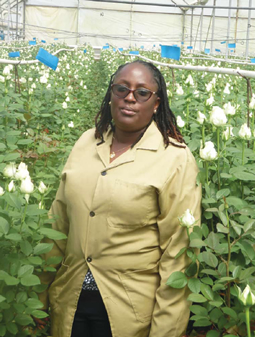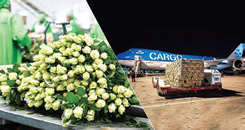 After climbing one great hill, one only realizes that there are many more mountains to climb’. This old adage attributed to one of African greats rings true in thrips management.
After climbing one great hill, one only realizes that there are many more mountains to climb’. This old adage attributed to one of African greats rings true in thrips management.
The recent restrictions of numerous active ingredients especially from organophosphates and neonicotinoids classes by different markets has made management of thrips very difficult as our senior correspondent found out. Growers serving different markets are in a dilemma and a cross check of their stores one will mistake them to a stockist. Some markets will restrict acephates others will accept, some imidacloprid others not, it is the same story with abamactin, thiamethoxam, thiacloprid, carbamates, fipronil, mancozeb etc.
As this is happening Kenya is facing acute water challenge and thrips been hydrophobic are multiping very fast. The past few years has seen the rise and spread of thrips in greenhouse farming, hitherto a minor pest, to become the most destructive insect pests of the greenhouses. Thrips are hitting growers where it hurts most!
Thrips has been, and still is, a difficult insect pest to control or regulate in greenhouse production systems leading many to believe that we have reached an impasse regarding its management. Dealing with thrips, therefore, requires a holistic approach integrating the methods detailed above. Key in this approach is knowledge about the biology of the pest, and indeed all other relevant pests, the crop (s), the cropping systems, pest management options etc. Knowledge, we believe is the best weapon against pests!
What are thrips?
Thrips are minute, slender insects, usually only a few millimetres long with piercing-sucking-mouthparts and the ability to cause direct damage to flowers making it unmarketable for export.
How do thrips feed?
Thrips have piercing-sucking mouthparts. They use a needle-like structure to puncture plant tissue and a second tube-like structure which is placed into the hole through which plantsap is extracted, subsequently causing direct damage to the crop.

 What is Sivanto Prime?
What is Sivanto Prime? What spurred you into growing? Any role model who inspired you?
What spurred you into growing? Any role model who inspired you?  Caterpillars are seasonal pests to the flowers but when in season result in major losses to the flower industry as one caterpillar can cause damage to more than one flower. In flowers there are different kinds of caterpillar species which include helicoverpa armigera and spodopteraexigua and thus it’s important to know the exact pest that one has in their crop and out of these two, the helicoverpa species is the notorious and listed as a notifiable pest in the European market.
Caterpillars are seasonal pests to the flowers but when in season result in major losses to the flower industry as one caterpillar can cause damage to more than one flower. In flowers there are different kinds of caterpillar species which include helicoverpa armigera and spodopteraexigua and thus it’s important to know the exact pest that one has in their crop and out of these two, the helicoverpa species is the notorious and listed as a notifiable pest in the European market. Kenyan vegetable growers are organized into either large group farms, single farms or out growers who produce for export companies under contract. The latter have to follow rules put in place by the contacting company. This is to ensure that homogeneity and food safety standards are met to the satisfaction of the produce’s end user.
Kenyan vegetable growers are organized into either large group farms, single farms or out growers who produce for export companies under contract. The latter have to follow rules put in place by the contacting company. This is to ensure that homogeneity and food safety standards are met to the satisfaction of the produce’s end user. After climbing one great hill, one only realizes that there are many more mountains to climb’. This old adage attributed to one of African greats rings true in thrips management.
After climbing one great hill, one only realizes that there are many more mountains to climb’. This old adage attributed to one of African greats rings true in thrips management. Regardless of how you grow, the profitability of your farm will depend on three main factors: demand, viability, and profit margin. Lots of new farmers focus the majority of their efforts on their ability to grow a single crop and forget to do research on the other factors.
Regardless of how you grow, the profitability of your farm will depend on three main factors: demand, viability, and profit margin. Lots of new farmers focus the majority of their efforts on their ability to grow a single crop and forget to do research on the other factors. But first, the ever fascinating Valentine’s story
But first, the ever fascinating Valentine’s story